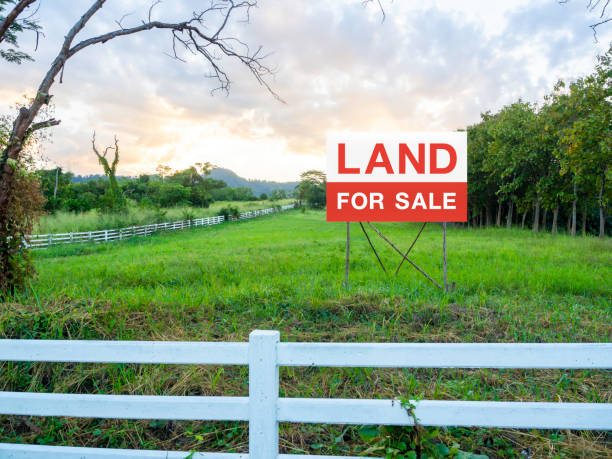
Not every land deal in Nigeria is as straightforward as it looks. In fact, one of the trickiest types of property transactions you can ever get involved in is buying inherited land. It often comes with stories, long family histories, and sometimes, unexpected headaches.
While the price may be attractive and the land location desirable, buyers need to slow down and look deeper. Understanding the 5 Hidden Dangers of Buying Inherited Land in Nigeria can save you from emotional stress, wasted money, and years of court battles.
Let’s take the case of Chidi, a businessman who returned from abroad with the dream of building his retirement home in Lagos. A relative introduced him to a family selling their late father’s land.
The documents looked convincing, the price was lower than the market rate, and everything seemed fine—until a year later when one of the late owner’s children sued him, claiming the land was sold without his consent.What Chidi thought was a dream turned into a nightmare of endless court sessions.
Sadly, his story is not uncommon. This is why we need to unpack the hidden dangers behind inherited land transactions.
1. Family Disputes and Unresolved OwnershipOne of the biggest dangers of buying inherited land is family disagreement. In many Nigerian families, land is passed down without clear documentation of who truly owns what. Some children may feel entitled, while others may want to sell.
The problem arises when not all family members agree. Imagine buying a piece of land from three siblings only to discover later that their fourth brother, who lives abroad, never approved of the sale. That brother can return anytime and challenge the transaction in court. Until the matter is resolved legally, the land remains under dispute, and your investment stays trapped.This is why it’s important to confirm that all rightful heirs have agreed in writing before any transaction takes place.
2. Lack of Proper DocumentationInherited land often lacks complete or updated documentation. Many times, the original owner may have bought the land decades ago without processing proper title documents like a Certificate of Occupancy (C of O), Governor’s Consent, or even a Deed of Assignment.As the land passes down to the children, the paperwork becomes even more confusing.
Some families rely only on informal documents, such as old receipts or local chiefs’ notes, which are not recognized in court. If you buy such land, you may spend years chasing documents or, worse still, discover that the land was never legally theirs to sell.
Without valid documentation, ownership becomes shaky, and as a buyer, your claim over the land may not stand when challenged.
3. Multiple Sales of the Same Land
This is a common trap with inherited property. Because different family members may see themselves as “owners,” they sometimes sell the same land to multiple buyers. One sibling may sell to you today, another may sell the same plot to someone else tomorrow, and yet another may use it as collateral for a loan.When this happens, the buyer with the strongest legal proof wins.
If you’re unlucky, you may lose both the land and the money you invested. In fact, many land disputes in Nigerian courts stem from this exact scenario.To protect yourself, you need to investigate carefully, confirm the true heirs, and insist on a family agreement that is signed, stamped, and legally backed.
4. Pending Legal Cases or Government EncumbrancesAnother hidden danger of buying inherited land in Nigeria is the possibility of hidden lawsuits or government interests.
Sometimes, the land may already be under dispute in court between family members. Other times, the government may have acquired the land for future development, but the family continues selling to unsuspecting buyers.
If you unknowingly buy such land, you automatically inherit the legal problems that come with it. Court cases can drag for years, draining you financially and emotionally. Worse still, if the government has plans for the land, you may lose everything without compensation.This is why land verification through proper search at the land registry and even community checks is not optional—it is essential.
5. Emotional Attachments and DelaysFinally, many families selling inherited land struggle with emotional attachments. Even after they agree to sell, one family member may suddenly change their mind or refuse to sign the final documents.
Others may delay the process, hoping to renegotiate or back out.This often frustrates buyers who have already invested time and money into the deal. Unlike buying land from a registered estate company, transactions involving inherited property tend to drag on unnecessarily, causing you to lose both opportunities and peace of mind.
Final ThoughtsBuying land in Nigeria can be one of the smartest investments you ever make, but it must be done with caution. When it comes to inherited property, the risks are higher than most people imagine. From family disputes and lack of documents to multiple sales and hidden court cases, these are the 5 Hidden Dangers of Buying Inherited Land in Nigeria that every buyer must be aware of.If you ever consider buying such land, work with professionals—lawyers, surveyors, and trusted realtors who understand the system. Cutting corners may look cheaper today, but it could cost you everything tomorrow.And remember, you don’t have to walk this path alone.I’m Dennis Isong, a top realtor in Lagos. I help Nigerians in the diaspora own property in Lagos, stress-free. If you have questions about safe property investment or need guidance on avoiding land scams, call or WhatsApp me at +2348164741041.
